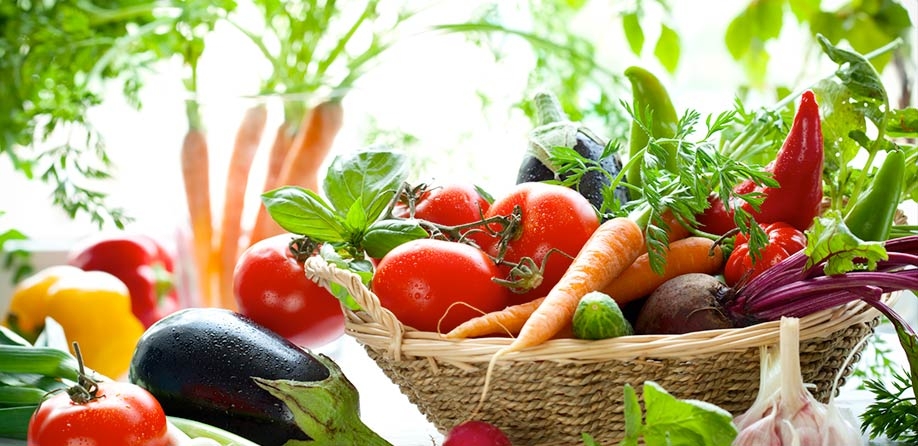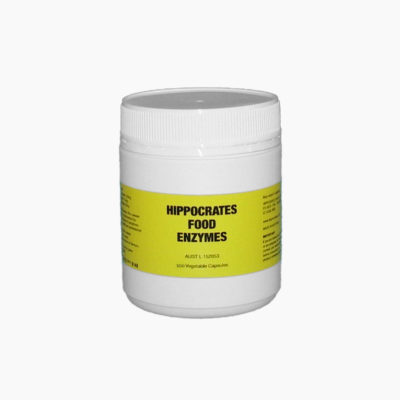
Food Enzymes for Your Health
Until the advent of modern farming and food manufacturing, most people got ample food enzymes from the plants they picked and ate – consuming a great deal of them more or less ripe from the vine.
A ripe fruit or vegetable freshly picked contains the most food enzymes it will ever have. As little as two hours off the vine will result in significant deterioration. Pick a fruit or vegetable that is less than ripe and then ship it via cold storage to your local grocers, and it may have less than 10% of the enzymes of a fresh-picked ripe fruit or vegetable. Add to that our over-farmed and mineral-depleted soils, the lack of time between crop plantings, and lack of sufficient micro-organisms, and the result is crops that have far fewer available nutrients and enzymes than those of previous years.
Food enzymes play key roles in our health by enabling our bodies to digest and utilize all nutrients we ingest to the greatest extent possible. Moreover, these enzymes also play a key role in elimination of toxins, digestion and removal of scar tissue that accrues inside us as we age.
Proper metabolic function requires many vitamins and minerals, in addition to fats, carbohydrates and water. All of these items combine to ensure that when food is consumed, it gets broken into its component parts for absorption, and then is transported by the bloodstream throughout the body.
Without food enzymes, the body cannot absorb nutrients in food. Over the years, the body slowly but surely loses its ability to produce digestive enzymes. As time goes by, we begin to discover that we cannot tolerate or enjoy certain foods as we once did. We may also notice a reduction in stamina. This means that we are running low on enzymes.
In one of his reports on anti-aging, noted alternative health voice Jon Barron noted the important role enzymes play in anti-aging:
“Dr. Edward Howell, in his book “Enzyme Nutrition“, puts it quite clearly when he says that a person’s lifespan is directly related to the exhaustion of his/her enzyme potential. And the use of supplemental food enzymes decreases that rate of exhaustion, and thus results in a longer, healthier, and more vital life.
“Enzymes are proteins that facilitate chemical reactions in living organisms. In fact, they are required for every single chemical action that takes place in your body. All of your cells, organs, bones, muscles, and tissues are run by enzymes.
“Your digestive system, immune system, bloodstream, liver, kidneys, spleen, and pancreas, as well as your ability to see, think, feel, and breathe, all depend on enzymes. All of the minerals and vitamins you eat and all of the hormones your body produces need enzymes in order to work properly. In fact, every single metabolic function in your body is governed by enzymes. Your stamina, your energy level, your ability to utilize vitamins and minerals, your immune system — all are governed by enzymes.
“As it happens, they are produced both internally (most notably in the pancreas and other endocrine glands) and are present in raw foods that we eat. At birth we are endowed with a certain potential for manufacturing enzymes in our bodies, an enzyme “reserve,” if you will. Nature intended that we continually replenish that reserve through proper nutrition and eating habits. Unfortunately, that just doesn`t happen. Let`s take a look at why.
“Most people believe that when you eat a meal it drops into a pool of stomach acid, where it`s broken down, then goes into the small intestine to have nutrients taken out, and then into the colon to be passed out of the body — if you`re lucky. Not quite.
“What nature intended is that you eat enzyme rich foods and chew your food properly. If you did that, the food would enter the stomach laced with digestive enzymes. These enzymes would then “predigest” your food for about an hour — actually breaking down as much as 75% of your meal.
“Eventually, this nutrient-rich food concentrate moves on into the small intestine. Once food enters the small intestine, the pancreas reintroduces digestive enzymes to the process. As digestion is completed, nutrients are passed through the intestinal wall and into the bloodstream.
“That`s what nature intended. Unfortunately, most of us don`t live our lives as nature intended!”
Hippocrates Pure Food Enzymes (including papain, bromelain, protease, lipase, amylase and cellulase and nothing else) are available.




